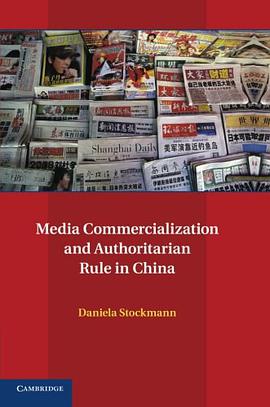Media Commercialization and Authoritarian Rule in China
豆瓣
Daniela Stockmann
简介
In most liberal democracies commercialized media is taken for granted, but in many authoritarian regimes the introduction of market forces in the media represents a radical break from the past with uncertain political and social implications. In Media Commercialization and Authoritarian Rule in China, Daniela Stockmann argues that the consequences of media marketization depend on the institutional design of the state. In one-party regimes such as China, market-based media promote regime stability rather than destabilizing authoritarianism or bringing about democracy. By analyzing the Chinese media, Stockmann ties trends of market liberalism in China to other authoritarian regimes in the Middle East, North Africa, sub-Saharan Africa and the post-Soviet region. Drawing on in-depth interviews with Chinese journalists and propaganda officials as well as more than 2000 newspaper articles, experiments and public opinion data sets, this book links censorship among journalists with patterns of media consumption and the media's effects on public opinion.
contents
Part I. Introduction:
1. Propaganda for sale
2. Marketized media as instruments of regime stability and change
3. Types of newspapers in China
Part II. Media Marketization and the Production of News:
4. Boundaries for news reporting on labor law and the United States
5. Selection and the tone of news stories
6. Discursive space in Chinese media
Part III. Media Marketization and Media Credibility:
7. Media credibility and media branding
8. Newspaper consumption
9. Media effects on public opinion
10. Media citizenship in China
Part IV. Conclusion:
11. China and other authoritarian states
12. Responsive authoritarianism in China
Appendix A. Notes on data and research design
Appendix B. Notes on case selection and generalizability
Appendix C. Experimental treatments
Appendix D. Data coding, statistical models, and robustness test results
Appendix E. Additional tables and figures.
